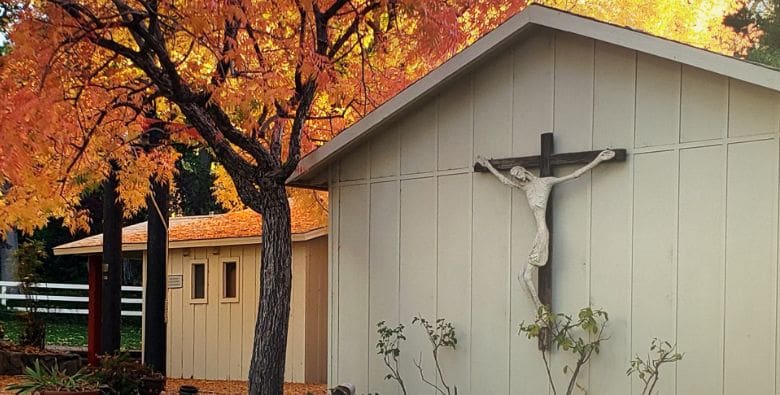Wednesday of the 15th Week of the Year (2017)
Fr. Joseph
The renowned Helen Keller was a woman who rose above the formidable challenges of being deaf and blind. She learned to communicate in an inspirational way and taught others to do the same. She once reflected: “The hilltop hour would not be half so wonderful if there were no dark valleys to traverse.” These dark valleys, of which she speaks, are an important part of our journey together as a people, as Church, as community and as individuals. Paradoxically, these dark valleys are sacred spaces, holy ground where God is powerfully present and at work in our lives in the midst of struggle and apparent failure. Moses discovers this on the occasion recalled for us in our account from Exodus today.
Moses’ own journey has been an up-and-down, circuitous one. As an infant he was delivered from the hands of Pharaoh, rescued and raised by Pharaoh’s own daughter. He rises to prominence in the realm. But in an instant all is lost as he strikes and kills an Egyptian who is abusing one of his fellow Israelites. When the matter is made known to Pharaoh, Moses flees into the desert of exile. Moses has fallen from the household of Pharaoh to the position of a sheepherder. But in this dark valley, this desert place Moses encounters the living God. A bush set afire by the hot desert sun is not consumed by the flames. Out of this wonder God reveals himself to Moses. He tells him he is the God of his fathers, Abraham, Isaac and Jacob. He is the God fo faithfulness and promises fulfilled to his people. But God also reveals to Moses who Moses is, who he is born to be, who he is the mind and heart of God. This sacred meeting with the living God is transformative for Moses. Just as the flames do not consume the bush, so the flame of God’s love, his saving plan enfolding Moses as this moment does not destroy him but empowers him to be all God desires him to be. Into the darkness of exile and failure comes the light of a whole new way for Moses. He is to be God’s instrument—-a shepherd to his people. Yet, darkness will remain; the road ahead is new and all its windings uncertain; there will be many challenges to face. For his part, Moses must put his trust and all his hope in God’s word, his promise: “I will be with you.”
Hope seems to be lacking among so many today. Perhaps, one of the main reasons for this is the fact that hope demands not only trust, but a letting go of control, a surrendering to the one who alone can make things happen well, who alone can bring about fruitfulness and fulfillment in our lives and in our world. Letting go or surrender is not a popular concept in a corporate world. The Benedictine, spiritual writer Joan Chittister reflects on the challenge and the gift of hope. She writes: hope “is about allowing ourselves to let go of the present, to believe in the future we cannot see but can trust to God. Surrendering to the demands of the moment, holding on when holding on seems pointless, brings us to that point of personal transformation which is the juncture of maturing and sagacity…” She reminds us that hope has the power to triumph over discouragement and despair: despair “burns out under the grace of certain belief in the ultimate goodness of God who is here but not visible, present but not controlling, the one permanence in our changing lives. Hope is the last great gift to rise out of the grave of despair.”
Hope calls forth from us not only our letting-go and surrender but our willingness to be led. Forced changes come upon all of us: sudden reversals of the way things have always been, failures, personal losses; familiar landscapes fade and we find ourselves in a place we have never been before. Something inside of us cries out: “This is not the Church I once knew; the community is so different from the once I entered years ago; I don’t know my family anymore.” These are moments when we are being invited into that childlike simplicity of which Jesus speaks into today’s Gospel. We must place our hand in his and let him bring us through uncharted areas to new heights which he will unfold to us in time. For all the dark times, the valleys and deserts that lie ahead may we keep in our hearts the acclamation of hope which we prayed on the day of monastic oblation or profession: ” Uphold me Lord according to your word and I shall live. Let not by hope be put to shame.”


Send Us a
Prayer Request
Every day the monks include the petitions they receive when they pray the Liturgy of the Hours. Let us know how we can pray for you!